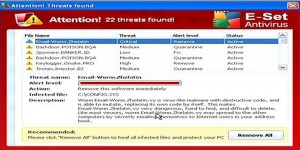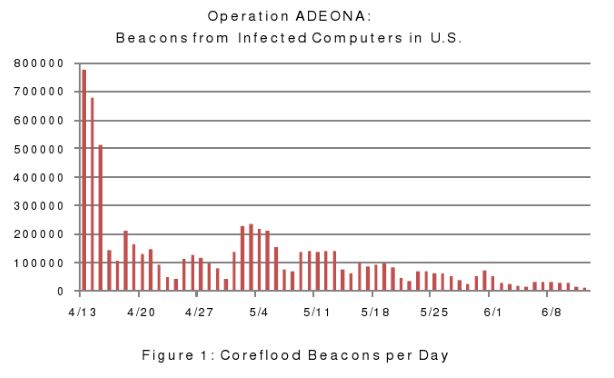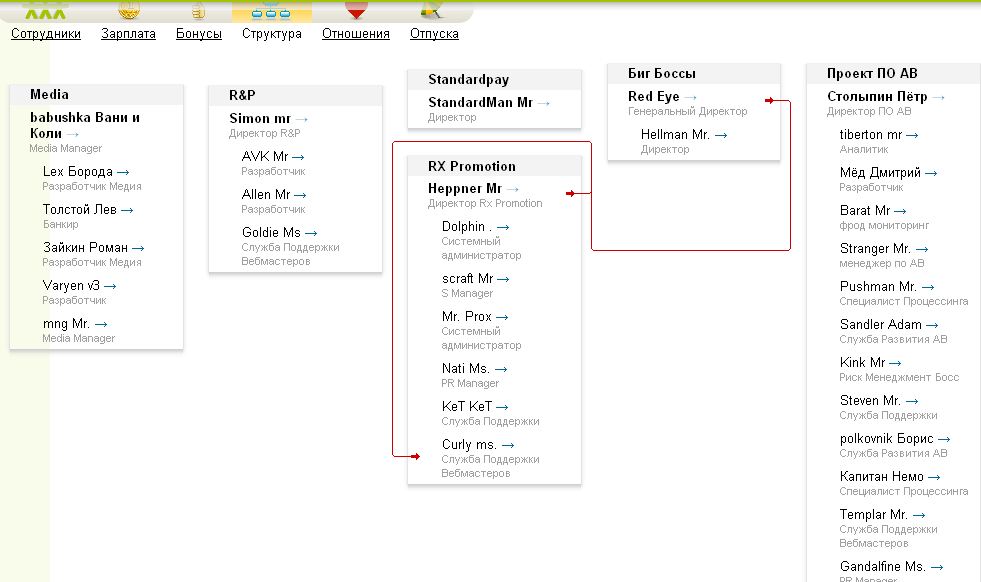Authorities seized computers and servers in the United States and seven other countries this week as part of an ongoing investigation of a hacking gang that stole $72 million by tricking people into buying fake anti-virus products. Police in Ukraine said the thieves fleeced unsuspecting consumers with the help of the infamous Conficker worm, although it remains unclear how big a role the fast-spreading worm played in this crime.
The Security Service of Ukraine (SBU) said today that it had seized at least 74 pieces of computer equipment and cash from a criminal group suspected of running a massive operation to steal banking information from consumers with the help of Conficker and scareware, a scam that uses misleading security alerts to frighten people into paying for worthless security software. A Google-translated version of an SBU press release suggests that the crime gang used Conficker to deploy the scareware, and then used the scareware to launch a virus that stole victims’ financial information.
The Ukrainian action appears to be related to an ongoing international law enforcement effort dubbed Operation Trident Tribunal by the FBI. In a statement released Wednesday, the U.S. Justice Department said it had seized 22 computers and servers in the United States that were involved in the scareware scheme. The Justice Department said 25 additional computers and servers located abroad were taken down as part of the operation, in cooperation with authorities in the Netherlands, Latvia, Germany, France, Lithuania, Sweden and the United Kingdom.
On Tuesday, The New York Times reported that dozens of Web sites were knocked offline when FBI officials raided a data center in Reston, Va. and seized Web servers. Officials from an affected hosting company told the Times that they didn’t know the reason for the raid, but the story suggested it may have been related to an ongoing investigation into a string of brazen intrusions by the hacktivist group “Lulzsec.” Sources close to the investigation told KrebsOnSecurity that the raid was instead related to the scareware investigation.
The FBI’s statement confirms the SBU’s estimate of $72 million losses, estimating that the scam claimed at least 960,000 victims. Although the FBI made no mention of Conficker in any of its press materials, the Ukrainian SBU’s press release names and quotes Special Agent Norman Sanders from the FBI’s Seattle field office, broadly known in the security industry as the agency’s lead in the Conficker investigation. Conficker first surfaced in November 2008. The SBU said the FBI has been investigating the case for three years. [Update, June 24, 9:37 a.m.: Not sure whether this was an oversight or a deliberate attempt to deceive, but the picture showing the stack of PCs confiscated in this raid is identical to the one shown in an SBU press release last fall, when the Ukrainian police detained five individuals connected to high-profile ZeuS Trojan attacks.]













